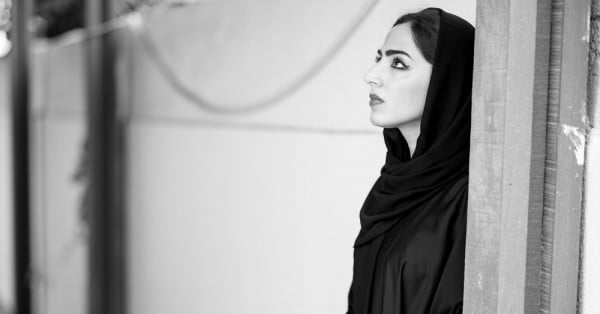
Cinema Akil founder Butheina Kazim discusses films, shared experience and bringing Dubai together with Eleanor Dickinson
All the world may have been a stage for Shakespeare, but for Butheina Kazim it’s all about the screen. As the founder of Cinema Akil, an independent, travelling theatre, Kazim has turned everything from the old warehouses of Al Quoz to a basketball court at Sole DXB into a silver screen. And now as it enters its second year, the self-confessed film buff has high hopes of bringing Cinema Akil to even more corners of the United Arab Emirates.
“I’ve become obsessed with the idea of cinema everywhere, so every time I see a space, I’m like how can I turn this into a cinema experience,” she says. “I really feel it has a huge role to play in getting a conversation going between the different demographics and pockets that live in Dubai, especially in the pan-Arab spirit, from Arab country to Arab country. It’s important to have a space or have a channel where you could have a window into the rest of the world.”
She adds: “Since its formation in July 2014, it has taken on two different lives: one is trying to set up a space or a structure to showcase films, but we are still working on that. In parallel, I was kind of impatient with the time it took to set up a space and I became interested in the idea of cinema that travelled – pop ups – and not just asking people to come to you, but you going to them and reaching different kinds of communities. Our first screening was a vey small one at Al Quoz and it was a summer-long programme, and we did everything from contemporary cinema, Arab, classics. Since then, we’ve done 23 pop-ups in the last 22 months. It’s been crazy. But I want to be able to grow; at the end of the day, if we didn’t grow, we couldn’t do different types of events, different spaces, even formats.”
Nevertheless, Cinema Akil’s rise hasn’t been an easy journey for Kazim and her co-founder/husband Mishaal al Gergawi. Due to initial funding difficulties, building Cinema Akil became something of a “creative challenge”. Instead of being able to rely on public grants, Kazim has instead adopted the model of commissioned-based funding, partnering with events like Sole DXB and Dubai Shopping Festival to continue acquiring and showing films.
Though Cinema Akil essentially operates on a project-to-project basis, it has given Kazim more freedom to “do the work we want to do”. And with more brands apparently keen to jump on board, Kazim is confident she has built a sustainable business model, but admits grant funding would be helpful in eventually giving Cinema Akil a permanent home. “That’s going to be a challenge,” she adds.
Unsurprisingly, the popularity of Al Quoz and Alserkal Avenue, Dubai’s industrial-cum-art district has played a major role in Cinema Akil’s success. And though the area has been hugely credited for boosting the city’s flourishing art and music scene, it has also become something of a hipster paradise, offering the obligatory over-priced coffee, to customised vintage bikes and even lessons in the useful life-skill of free-running. All pretty removed from Dubai’s older, impoverished areas, including Bur Dubai, where the last independent Indian theatre, the Golden Cinema, showed its final film last year. However, Kazim is all too aware of the difficulty with reaching every – especially the northern – corners of Dubai, which is why Bur Dubai remains a regular on the pop-up schedule. She adds: “Sometimes it’s very easy for a space like this to get caught in the trappings of an elitist arts and culture environment that doesn’t meet different segments of society. And cinema to me is one of the most wide-reaching, democratic, accessible media.”
As well as trying to reach as wide an audience in Dubai and the UAE as possible, one of Cinema Akil’s other main goals is to facilitate discussion on a number of issues, ranging from sweat shops, environmental suitability, to the birth of hip-hop. And naturally that discussion begins with the films itself. But, unless it is for a cause-related project, Kazim is keen to avoid over-loading the audience with a didactic, in-your-face experience, instead preferring a more “nuanced and experimental lens”.
“It’s more about broadening your imagination and allowing yourself to really travel to different possibilities,” she says. “I fundamentally think cinema is about shared experience. And that’s why you have things like Ripe Market, Freshly Ground Sounds, these are all precedences for public shared experiences that show there is a real hunger for people to come together. Whenever we can, we always try to have a question and answer session or an introduction by someone to really allow people to engage because it’s not just about the film, it’s about the larger ideas around it.
“The the thing with cinema is that you’re never going to get the full integrated and also fair reflection of reality because experiences are by virtue very specific and personal. But at least you get a sliver. It gives you an access to a world you wouldn’t normally have.”










